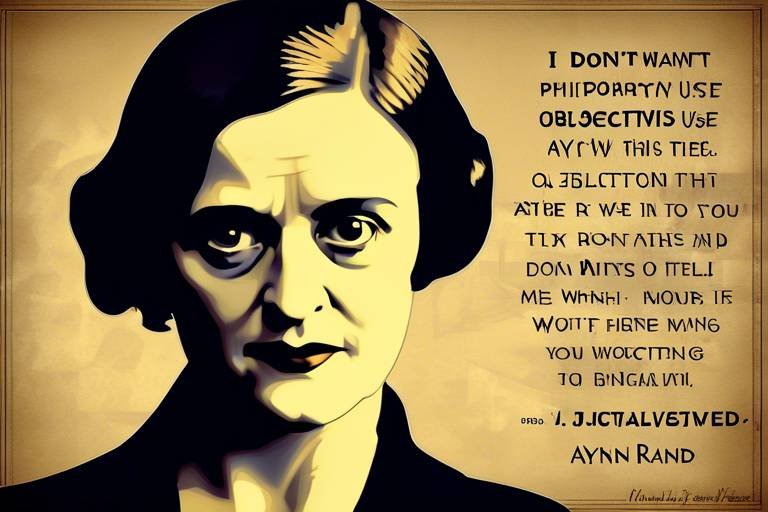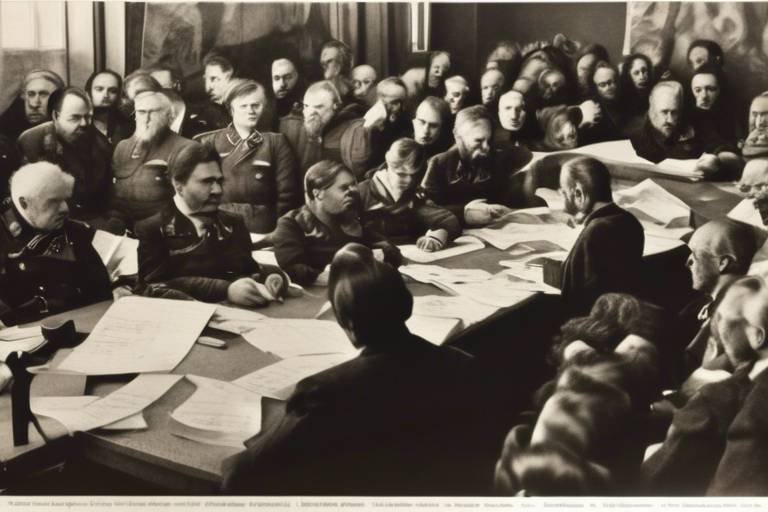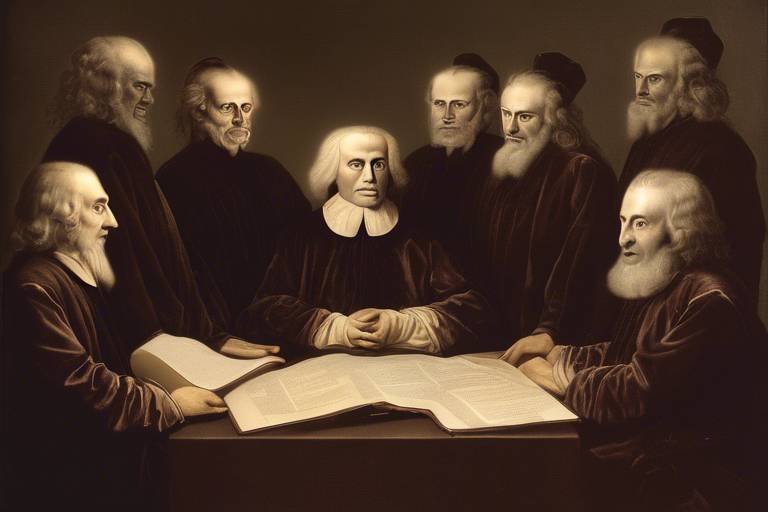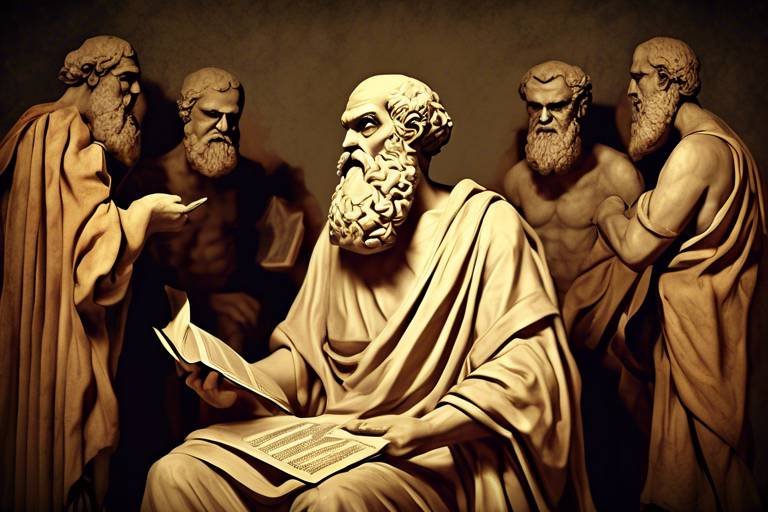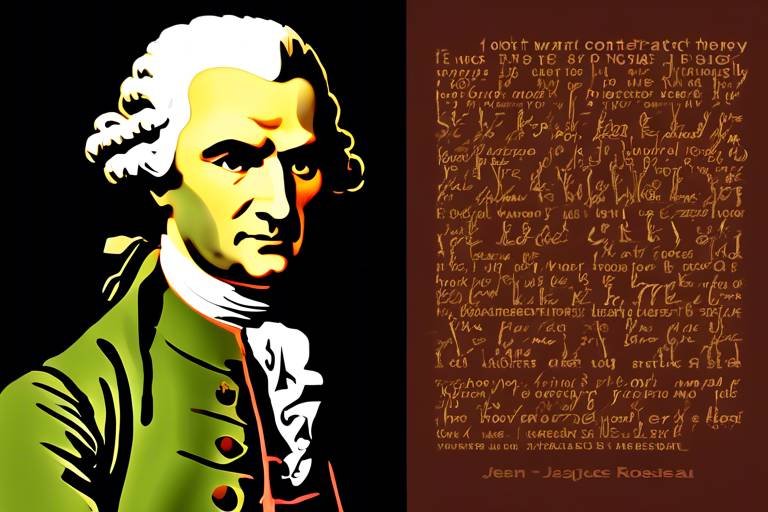Philosophy of Law - A Brief Overview
The philosophy of law is a fascinating field that delves into the fundamental questions surrounding legal systems, their origins, and their implications on society. It intertwines with various disciplines, including morality, politics, and ethics, creating a rich tapestry of thought that seeks to understand what law is and how it functions. At its core, this philosophy examines the relationship between law and justice, exploring how legal principles intersect with societal norms and individual rights. Have you ever wondered why certain laws exist or how they are justified? This inquiry is precisely what the philosophy of law seeks to address.
Throughout history, thinkers have grappled with these questions, leading to the development of several key theories that shape our understanding of law today. From the ancient civilizations that laid down the first legal codes to modern theorists who challenge existing norms, the evolution of legal philosophy reflects the complexities of human society. It's not just about rules and regulations; it's about the very essence of what it means to live in a governed society. The interplay between law and morality raises critical questions: Is law merely a set of rules, or does it have a moral foundation? Can laws be unjust, and if so, what should be done about them?
In this article, we will explore the major themes and theories within the philosophy of law, including natural law theory, which posits that certain rights are inherent and universal, and legal positivism, which argues that law is a construct of human society. We will also touch on critical legal studies, a contemporary movement that challenges traditional legal doctrines, and discuss the vital role of ethics in shaping legal practices. By understanding these concepts, we can better appreciate the intricate relationship between law and the moral fabric of society.
As we navigate through these complex ideas, we will also highlight the contributions of key figures in legal philosophy, such as Thomas Aquinas and John Locke, whose insights continue to influence modern legal thought. Furthermore, we will examine the implications of these theories in today's legal landscape, particularly in the realms of human rights and social justice.
Ultimately, the philosophy of law is not just an academic pursuit; it is a vital inquiry that affects our daily lives. Whether you are a law student, a practicing attorney, or simply a curious individual, understanding the philosophy behind the law can empower you to engage more thoughtfully with the legal system. So, let's dive deeper into this captivating subject and uncover the layers of meaning that define our laws and, by extension, our society.
- What is the philosophy of law?
The philosophy of law, or legal philosophy, examines the nature of law, its purposes, and its relationship to morality and justice.
- Why is natural law important?
Natural law theory argues that certain rights are inherent and universal, influencing the development of legal systems and human rights legislation.
- What is legal positivism?
Legal positivism asserts that law is a set of rules created by humans, independent of moral considerations.
- How does ethics relate to law?
Ethics plays a crucial role in law by informing legal practices and guiding judicial decision-making.

Historical Foundations of Legal Philosophy
The trace back to ancient civilizations, where the seeds of legal thought were sown in the fertile ground of human experience. From the early codifications of law in Mesopotamia to the philosophical musings of ancient Greece, the evolution of legal philosophy has been a journey marked by the contributions of numerous thinkers who sought to understand the nature of law and its relation to morality and society. In ancient Egypt, for instance, the concept of Ma'at represented truth, balance, and order, which were essential to the legal framework of the time. This notion of an inherent order in the universe influenced later legal thought, establishing a precedent for the intertwining of law and morality.
Moving into the classical era, the Greeks made significant strides in legal philosophy. Thinkers like Socrates, Plato, and Aristotle laid the groundwork for understanding justice and the role of the state in enforcing laws. Plato, in his work "The Republic," posited that justice is a virtue that must be upheld by both individuals and the state, suggesting that laws should reflect moral truths. Aristotle, on the other hand, took a more pragmatic approach, arguing that laws should serve the common good and promote virtue among citizens. His idea of the 'Golden Mean' emphasized balance, suggesting that laws should not be overly harsh or lenient but should reflect a middle ground that encourages ethical behavior.
As we journey through time, the Roman Empire further developed legal thought, particularly through the works of jurists like Cicero and the codification of laws in the Twelve Tables. Cicero's idea of natural law, which posited that certain rights are inherent and universal, laid the groundwork for future discussions on human rights. The Romans distinguished between ius civile (civil law) and ius naturale (natural law), highlighting the tension between laws created by humans and those that are considered universal truths.
Fast forward to the Middle Ages, where legal philosophy took on a new dimension with the influence of religious thought. Thinkers such as Thomas Aquinas integrated Aristotelian philosophy with Christian doctrine, arguing that law is a reflection of divine order. Aquinas believed that human laws must align with natural law, which is rooted in moral principles. His works emphasized that unjust laws are not true laws, a sentiment that resonates in contemporary legal discourse.
In the Enlightenment period, legal philosophy underwent a transformation as thinkers like John Locke and Jean-Jacques Rousseau explored the social contract theory. Locke's belief in natural rights—life, liberty, and property—asserted that individuals possess inherent rights that must be protected by the government. Rousseau, on the other hand, emphasized the collective will, arguing that laws should reflect the general will of the populace, thus laying the groundwork for democratic principles.
As we entered the 19th and 20th centuries, legal philosophy diversified further with the emergence of various schools of thought. The rise of legal positivism, championed by figures like Jeremy Bentham and H.L.A. Hart, asserted that law is a human-made construct, separate from morality. This perspective challenged earlier notions of natural law and opened up debates about the nature of justice and the role of law in society.
To summarize, the historical foundations of legal philosophy are rich and complex, shaped by various cultures and thinkers who have grappled with the relationship between law, morality, and society. The evolution of legal thought reflects humanity's ongoing quest for justice, order, and understanding in a world that is constantly changing.
- What is the significance of natural law in legal philosophy?
Natural law is significant because it posits that certain rights and moral values are inherent and universal, influencing legal systems and the development of human rights. - How did ancient civilizations contribute to legal philosophy?
Ancient civilizations laid the groundwork for legal thought by codifying laws and exploring concepts of justice and morality, influencing thinkers throughout history. - What role did the Enlightenment play in shaping modern legal thought?
The Enlightenment introduced ideas of natural rights and social contracts, emphasizing the importance of individual rights and democratic governance in legal philosophy.

Natural Law Theory
The is a fascinating concept that suggests that certain rights and moral values are not merely human inventions but are inherent and universal. This theory posits that there exists a set of laws that transcend human-made statutes, rooted in nature and accessible through human reason. Imagine a world where the principles of justice and morality are as fundamental as the laws of physics—this is the essence of natural law. It's the idea that some truths are self-evident, guiding the creation and interpretation of laws across different cultures and societies.
Historically, natural law has been a cornerstone in the development of legal systems. Thinkers like Thomas Aquinas and John Locke have significantly shaped our understanding of this theory. Aquinas, for instance, argued that natural law is part of God's eternal law and that humans can discern it through reason. On the other hand, Locke emphasized the idea of natural rights—life, liberty, and property—as fundamental to human existence. These contributions have laid the groundwork for contemporary discussions on human rights and justice.
To truly appreciate natural law, we must highlight some of its key proponents. Below is a brief overview of influential philosophers who have shaped this theory:
| Philosopher | Contribution |
|---|---|
| Thomas Aquinas | Integrated natural law with Christian theology, emphasizing reason as a path to understanding moral law. |
| John Locke | Proposed the concept of natural rights, influencing democratic principles and human rights discussions. |
These thinkers have profoundly impacted how we perceive law today, intertwining legal principles with moral philosophy. Their ideas continue to resonate in modern legal frameworks, shaping discussions around human rights and justice. For instance, the principles of natural law have found their way into international law, where the protection of individual rights is paramount.
In today's world, the relevance of natural law theory is evident in various legal systems, especially concerning human rights legislation. Many contemporary legal frameworks draw upon the principles of natural law to argue for the protection of fundamental human rights. This connection reinforces the notion that legality should not exist in a vacuum but must be intertwined with morality and ethics. For example, international human rights laws often reference natural law principles, asserting that certain rights are inalienable and must be upheld regardless of local laws.
However, natural law theory is not without its critics. Detractors argue that it can be overly rigid, failing to adapt to the complexities of modern society. Legal positivism, which emphasizes law as a social construct independent of moral considerations, presents a significant challenge to natural law theorists. Critics contend that laws should evolve based on societal needs rather than adhere strictly to perceived natural rights. This debate raises essential questions about the balance between morality and legality in our ever-changing world.
In summary, natural law theory offers a compelling perspective on the intersection of law and morality. It invites us to consider the fundamental principles that underpin our legal systems and challenges us to reflect on the ethical implications of our laws. As we navigate the complexities of modern legal issues, the discourse surrounding natural law remains vital, prompting us to think critically about justice, rights, and the role of law in society.
- What is natural law theory? Natural law theory posits that certain rights and moral values are inherent and universal, guiding legal systems.
- Who are the key figures in natural law? Influential philosophers include Thomas Aquinas and John Locke, who significantly shaped the understanding of natural rights and justice.
- How is natural law applied today? Natural law principles are often reflected in human rights legislation and international law, emphasizing the connection between morality and legality.
- What are the critiques of natural law? Critics argue that natural law can be rigid and that legal positivism provides a more adaptable framework for understanding law.

Key Figures in Natural Law
When diving into the rich tapestry of natural law theory, it's impossible to overlook the monumental contributions of several key figures who have shaped its foundations. Among these thinkers, Thomas Aquinas and John Locke stand out as pivotal figures whose ideas resonate through the corridors of legal philosophy even today. Aquinas, a medieval philosopher, argued that law is not merely a human construct but is instead rooted in a divine moral order. He posited that human laws must align with natural laws to be just, suggesting that morality is an intrinsic part of legal systems. This perspective laid the groundwork for the belief that certain rights are universal and should be upheld by all societies.
On the other hand, John Locke, a 17th-century philosopher, brought a different flavor to natural law theory. He introduced the concept of natural rights, emphasizing that individuals possess inherent rights to life, liberty, and property. Locke's ideas were revolutionary, suggesting that governments are formed to protect these rights and that any government failing to do so loses its legitimacy. His thoughts heavily influenced the development of democratic principles and the framing of modern constitutions, particularly in the United States, where the Declaration of Independence echoes his assertions about unalienable rights.
Both Aquinas and Locke provide a fascinating lens through which we can view the intersection of law and morality. Their theories not only challenge us to consider the ethical dimensions of legal frameworks but also compel us to question the very nature of justice. In contemporary discussions, the echoes of their philosophies can be seen in debates surrounding human rights legislation and the moral obligations of legal systems globally.
While their contributions are significant, it's essential to recognize that the discourse around natural law is not without its critiques. Some argue that the rigid adherence to a moral framework can lead to conflicts with the evolving nature of societal norms. Nevertheless, the foundational ideas laid down by these philosophers continue to be a cornerstone in the ongoing dialogue about the role of law in society.
| Name | Era | Key Contributions |
|---|---|---|
| Thomas Aquinas | 1225-1274 | Proposed that human laws must align with divine natural laws; emphasized morality in legal systems. |
| John Locke | 1632-1704 | Introduced the concept of natural rights (life, liberty, property); influenced democratic principles and constitutions. |
In conclusion, the exploration of natural law is enriched by the insights of these key figures. Their philosophies not only shape legal theory but also invite us to reflect on the moral underpinnings of our laws. As we navigate the complexities of modern legal systems, the legacies of Aquinas and Locke remind us of the enduring importance of aligning law with fundamental human rights and ethical considerations.
- What is natural law? Natural law refers to a theory that posits certain rights and moral values are inherent in human nature and can be discovered through reason.
- Who are the main proponents of natural law? Key figures include Thomas Aquinas and John Locke, both of whom have significantly influenced the understanding of law and morality.
- How does natural law apply to modern legal systems? Natural law theory influences human rights legislation and international law by reinforcing the connection between morality and legality.
- What are the critiques of natural law? Critics argue that natural law can be too rigid and may conflict with legal positivism, which views law as a social construct.

Contemporary Applications of Natural Law
The concept of natural law has not merely remained a relic of philosophical debates; it continues to resonate profoundly within contemporary legal frameworks. At its core, natural law theory posits that certain rights and moral values are inherent to human beings, transcending any man-made laws. This is particularly significant in the realm of human rights, where the principles of natural law serve as a foundation for advocating justice and equality across the globe.
In modern legal systems, natural law influences various aspects of legislation and judicial interpretation. For instance, many countries have incorporated natural law principles into their constitutions, ensuring that fundamental human rights are protected regardless of the prevailing political climate. This connection between natural law and human rights is evident in international treaties and declarations, such as the Universal Declaration of Human Rights, which embodies the idea that certain rights are universal and inalienable.
Moreover, the application of natural law can be seen in the realm of international law, particularly in cases dealing with war crimes and crimes against humanity. Courts such as the International Criminal Court (ICC) often refer to natural law principles when determining the legality of actions taken by states or individuals. This is crucial in upholding justice in situations where national laws may fail to protect victims or hold perpetrators accountable.
Interestingly, the contemporary application of natural law is not without its challenges. Critics argue that relying on inherent moral values can lead to subjective interpretations of what constitutes "natural" rights. This subjectivity can create inconsistencies in legal rulings and applications. Despite these critiques, the enduring influence of natural law in shaping legal discourse and practice is undeniable. It acts as a moral compass, guiding lawmakers and judges in their pursuit of justice and equity.
To further illustrate the contemporary applications of natural law, consider the following table that outlines key areas where natural law principles are actively engaged:
| Area of Application | Description |
|---|---|
| Human Rights Legislation | Natural law serves as a foundation for laws protecting individual rights and freedoms. |
| International Law | Guides legal standards in cases of war crimes and humanitarian issues. |
| Judicial Interpretation | Judges reference natural law principles when making decisions that impact justice and morality. |
| Constitutional Law | Many constitutions incorporate natural law principles to safeguard fundamental rights. |
In summary, the contemporary applications of natural law are multifaceted, influencing not just legal theory but also the practical workings of legal systems around the world. As societies evolve, the dialogue surrounding natural law continues to adapt, ensuring that the quest for justice remains at the forefront of legal practice. This dynamic interplay between moral philosophy and legal frameworks underscores the importance of maintaining a robust understanding of natural law in our ever-changing world.
- What is natural law? Natural law refers to a philosophy asserting that certain rights and moral values are inherent to human beings and universally applicable.
- How does natural law influence modern legal systems? Natural law principles guide the creation of laws, judicial decisions, and the protection of human rights, providing a moral foundation for legal practices.
- Are there criticisms of natural law? Yes, critics argue that natural law can be subjective, leading to inconsistencies in legal interpretations and applications.
- How is natural law applied in international law? Natural law informs legal standards in international treaties and courts, particularly in cases involving human rights violations and war crimes.

Critiques of Natural Law
The concept of natural law has long been a cornerstone of legal philosophy, suggesting that there are inherent rights and moral values that transcend human-made laws. However, this theory is not without its critics, and several arguments have been raised against its foundational premises. One of the primary critiques is the notion of rigidity in natural law. Critics argue that by adhering strictly to a set of universal moral principles, natural law can become inflexible and unable to adapt to the complexities of modern society. This rigidity raises questions about how laws should evolve in response to changing social norms and values.
Another significant challenge comes from the perspective of legal positivism. Proponents of legal positivism assert that law is a social construct, created by human beings through legislative processes. They argue that natural law's insistence on universal moral truths can lead to conflicts between legal obligations and individual moral beliefs. This perspective emphasizes that laws should be understood as rules that govern society, rather than as reflections of a moral order. In this view, the authority of law comes from its enactment and acceptance within a community, rather than from any inherent moral value.
Furthermore, critics often highlight the subjectivity involved in interpreting what constitutes 'natural' rights. Different cultures and societies may have varying interpretations of morality and justice, leading to significant discrepancies in how natural law is applied. This subjectivity can result in a lack of consensus on fundamental rights, which can undermine the universality that natural law seeks to promote. For instance, issues like abortion and same-sex marriage illustrate how differing moral frameworks can lead to conflicting legal interpretations based on natural law principles.
Moreover, there are concerns regarding the historical context of natural law theories. Many foundational figures, such as Thomas Aquinas and John Locke, were products of their time, and their views were influenced by the cultural and societal norms of their eras. Critics argue that relying on these historical perspectives may not adequately address contemporary issues that require a more nuanced understanding of justice and rights. As society evolves, so too should our legal frameworks, which may necessitate a departure from rigid natural law interpretations.
In summary, while natural law theory provides a compelling framework for understanding the relationship between law and morality, it faces substantial critiques that challenge its applicability in modern legal systems. The debates surrounding these critiques continue to shape discussions in legal philosophy, prompting ongoing reevaluation of how laws are created, interpreted, and enforced in a diverse and changing world.
- What is natural law? Natural law is a philosophical theory suggesting that certain rights and moral values are inherent to human beings and universally applicable, regardless of human-made laws.
- What are the main critiques of natural law? The main critiques include its rigidity, the subjectivity of moral interpretations, the influence of historical context, and the challenges posed by legal positivism.
- How does legal positivism differ from natural law? Legal positivism argues that laws are human-made constructs that do not necessarily reflect moral values, while natural law posits that laws should align with universal moral principles.
- Can natural law adapt to modern societal changes? Critics argue that natural law's rigidity makes it difficult to adapt to contemporary issues, highlighting the need for legal frameworks to evolve with societal norms.

Legal Positivism
Legal positivism is a pivotal theory in the philosophy of law that asserts the idea that laws are rules created by humans and are not necessarily tied to moral values. This perspective marks a significant departure from natural law theories, which argue that law is inherently connected to morality. Legal positivists maintain that the validity of a law is determined by its sources, rather than its content. In essence, if a law is enacted through the proper legal procedures, it is valid, regardless of its moral implications.
At its core, legal positivism emphasizes a clear distinction between law and morality. This separation allows for a more pragmatic approach to legal systems, focusing on how laws function within society rather than debating their moral worth. For instance, a legal positivist might argue that even unjust laws must be followed until they are repealed or changed by the proper legislative processes. This principle is crucial in maintaining order and predictability in legal systems, as it provides a framework for resolving disputes without delving into moral judgments.
One of the key figures in legal positivism is H.L.A. Hart, whose work has greatly influenced modern legal thought. Hart proposed that laws are a system of rules that can be categorized into primary rules, which impose duties, and secondary rules, which provide the mechanisms for creating, changing, and interpreting the primary rules. This duality allows for a more structured understanding of how laws operate and evolve over time.
Another significant contributor to the development of legal positivism is Jeremy Bentham, who advocated for the idea of utilitarianism in law. Bentham believed that laws should promote the greatest happiness for the greatest number of people, thus linking legal validity to societal outcomes rather than moral considerations. This utilitarian approach has had lasting effects on legal reform and the evaluation of laws in terms of their social impact.
Legal positivism has faced its share of critiques, particularly from natural law theorists who argue that a purely positivist approach can lead to the endorsement of unjust laws. For example, laws that uphold discrimination or violate fundamental human rights could be considered valid under a strict positivist interpretation. This raises important ethical questions about the role of law in society and the responsibilities of legal practitioners to advocate for justice.
Despite its critiques, legal positivism remains a foundational theory in legal studies and practice. It provides a framework for understanding how laws are created and enforced, emphasizing the importance of legal processes over moral debates. In contemporary legal systems, positivist principles can be seen in various contexts, such as constitutional law, where the adherence to established legal procedures is paramount for the legitimacy of laws.
In summary, legal positivism plays a crucial role in shaping our understanding of law as a human construct, distinct from moral considerations. It invites us to consider the implications of our legal systems and the importance of adhering to established rules while also prompting critical discussions about the ethical dimensions of law. The ongoing dialogue between legal positivism and natural law continues to enrich the field of legal philosophy, challenging us to think deeply about the nature of justice and the role of law in society.
- What is legal positivism? Legal positivism is the theory that laws are rules created by humans and are not inherently connected to moral values.
- Who are the key figures in legal positivism? Key figures include H.L.A. Hart and Jeremy Bentham, both of whom have significantly influenced modern legal thought.
- What are the main criticisms of legal positivism? Critics argue that legal positivism can lead to the acceptance of unjust laws, as it separates law from morality.
- How does legal positivism impact modern legal systems? Legal positivism emphasizes the importance of legal procedures and the validity of laws based on their enactment rather than their moral implications.

Critical Legal Studies
Critical Legal Studies (CLS) emerged in the late 20th century as a provocative movement within the realm of legal theory. It fundamentally challenges the traditional understandings of law, asserting that legal doctrines are not merely neutral rules but are deeply intertwined with social, political, and economic contexts. This perspective invites us to reconsider the very nature of law itself—questioning who benefits from legal structures and who is marginalized by them. The CLS movement argues that law cannot be separated from the power dynamics that shape society, highlighting that legal outcomes often reflect the interests of the powerful rather than serving justice or equality.
One of the core tenets of CLS is its critique of the idea that law is a rational and objective system. Instead, proponents of this movement assert that law is inherently subjective, influenced by the biases, ideologies, and interests of those who create and enforce it. This perspective encourages a more nuanced understanding of legal practices, prompting scholars and practitioners alike to examine how laws can perpetuate inequality and injustice. For example, CLS scholars might analyze how laws regarding property rights can favor affluent individuals while disenfranchising marginalized communities.
Moreover, CLS emphasizes the importance of context in legal interpretation. Legal outcomes are not just determined by statutes or case law; they are also shaped by societal norms and values. Therefore, understanding law requires an examination of the broader social fabric in which it operates. This approach has significant implications for how we view legal reform. Rather than simply amending laws, CLS advocates for a fundamental rethinking of the legal system to address the underlying power structures that perpetuate inequality.
As we delve deeper into the implications of Critical Legal Studies, it's essential to recognize its intersection with social justice movements. CLS does not exist in a vacuum; it actively engages with various social issues, advocating for reforms that promote equity and address systemic injustices. For instance, the movement has been influential in discussions surrounding civil rights, labor rights, and environmental justice, pushing for legal frameworks that are more inclusive and representative of diverse communities.
In conclusion, Critical Legal Studies invites us to challenge the status quo of legal thought and practice. By emphasizing the role of power in shaping law, CLS encourages a critical examination of legal systems, advocating for a more equitable society. This perspective not only reshapes our understanding of law but also empowers individuals to question and demand change within the legal frameworks that govern their lives.
- What is Critical Legal Studies?
Critical Legal Studies is a movement that critiques traditional legal doctrines, emphasizing the influence of social, political, and economic factors on law and its application.
- How does CLS relate to social justice?
CLS intersects with social justice by advocating for legal reforms that address systemic inequalities and promote equity within legal frameworks.
- Why is context important in law according to CLS?
Context is crucial because legal outcomes are shaped not only by laws but also by societal norms and values, which can reflect power dynamics.
- What impact has CLS had on legal thought?
CLS has significantly influenced contemporary legal thought by challenging the notion of law as objective and highlighting the subjective nature of legal interpretations.
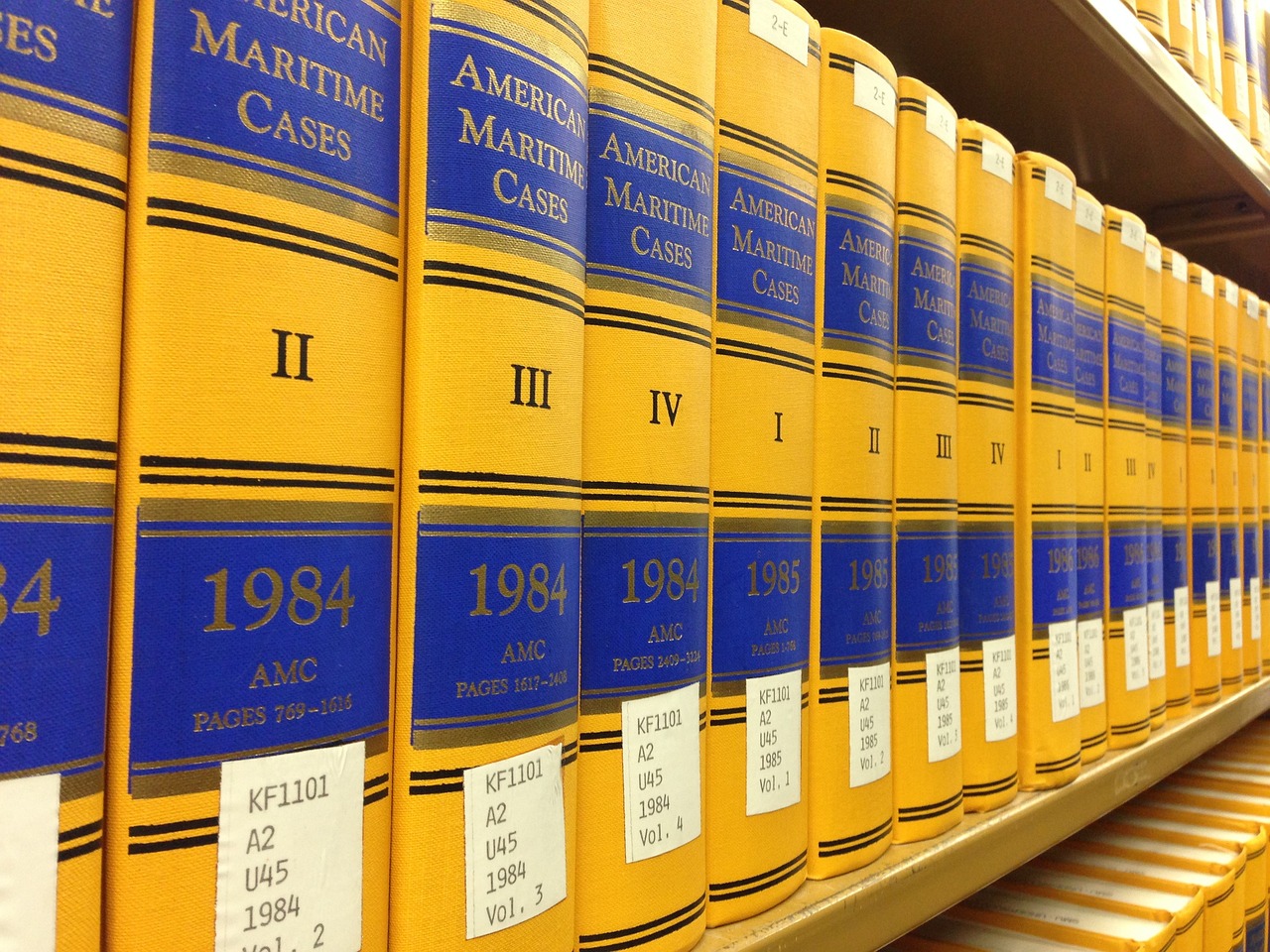
Intersection with Social Justice
The intersection of critical legal studies and social justice is a vibrant and dynamic area of discourse that challenges the status quo of legal systems. At its core, critical legal studies (CLS) seeks to unveil the ways in which law is not merely a set of neutral rules but is deeply intertwined with societal power structures, economic disparities, and political influences. This perspective posits that law often perpetuates inequalities rather than alleviating them, prompting a reevaluation of how legal frameworks can be reformed to promote equity and justice.
One of the most compelling arguments within this intersection is that laws are created and enforced within a context that reflects the values and interests of those in power. For example, consider how legislation around issues such as housing, labor rights, and criminal justice can favor certain groups while marginalizing others. The CLS movement advocates for a legal approach that not only recognizes these disparities but actively works to dismantle them, ensuring that the law serves as a tool for social change rather than oppression.
Moreover, the discourse surrounding social justice within CLS emphasizes the importance of community involvement and grassroots movements. Legal reforms are more likely to be effective when they are informed by the experiences and needs of those directly affected by the law. This participatory approach is crucial in addressing systemic inequalities, as it shifts the narrative from a top-down imposition of laws to a collaborative effort that includes the voices of marginalized communities.
To illustrate this point, let’s consider some key areas where critical legal studies and social justice intersect:
| Area of Focus | Critical Legal Studies Perspective | Social Justice Implications |
|---|---|---|
| Criminal Justice | Examines how laws disproportionately affect marginalized groups. | Advocates for reforms that address racial and economic disparities. |
| Labor Rights | Critiques how labor laws can favor corporations over workers. | Pushes for equitable labor practices and protections for all workers. |
| Housing | Analyzes the impact of zoning laws and housing policies. | Supports affordable housing initiatives and anti-displacement measures. |
In essence, the partnership between critical legal studies and social justice is about recognizing that the law is not an isolated entity; it is a reflection of our society’s values and priorities. By critically examining these intersections, advocates can push for a legal system that not only acknowledges the injustices present but also actively works to rectify them. This ongoing dialogue is vital as it encourages a more inclusive and equitable approach to law that is responsive to the needs of all citizens.
- What is critical legal studies? Critical legal studies is a movement that critiques traditional legal doctrines and highlights the influence of social, political, and economic factors on law.
- How does social justice relate to law? Social justice emphasizes fairness and equality in legal systems, advocating for reforms that address systemic inequalities.
- Can law promote social change? Yes, law can be a powerful tool for social change when it is informed by the needs of marginalized communities and is aimed at promoting equity.

The Role of Ethics in Law
When we think about law, we often envision a rigid set of rules that govern society. However, the reality is far more complex. The interplay between ethics and law is a fascinating dance where moral principles significantly influence legal practices. Ethics provides a framework for understanding what is right and wrong, and these moral considerations are crucial in shaping laws that govern our lives. Just consider this: laws are not merely arbitrary rules; they are reflections of our societal values and ethical beliefs. So, how do these two spheres interact, and why is this relationship so important?
At its core, the law is designed to uphold justice and protect individual rights. However, the interpretation and application of these laws often require a deep understanding of ethical principles. For instance, judges frequently find themselves in situations where they must make decisions that are not only legal but also morally sound. This is where the concept of judicial discretion comes into play. Judges are tasked with interpreting laws, but they also have the responsibility to consider the ethical implications of their rulings. This balancing act can lead to challenging dilemmas. Imagine a judge faced with a case where the law seems to favor a particular outcome, but the ethical implications suggest a different path. What should they do?
To illustrate this, consider the following table that outlines some common ethical dilemmas faced by judges:
| Dilemma | Description | Possible Outcomes |
|---|---|---|
| Mandatory Sentencing | When laws require minimum sentences, judges may feel restricted despite unique circumstances. | Justice may not be served; potential for harsh penalties. |
| Conflicts of Interest | Judges must navigate situations where personal beliefs conflict with legal obligations. | Could lead to biased rulings or recusal from cases. |
| Public Opinion | Judges may face pressure from societal views that conflict with legal principles. | Risk of undermining the rule of law for popular sentiment. |
As we can see, these dilemmas highlight the ethical challenges that judges encounter. It’s not just about following the law; it’s about ensuring that justice is served in a way that aligns with moral values. This is particularly relevant in cases involving marginalized communities, where the law may not always protect their rights adequately. In such instances, ethical considerations become even more vital, pushing judges to advocate for fairness and equity.
Furthermore, the role of ethics in law extends beyond the courtroom. Legal professionals, including lawyers and lawmakers, must also grapple with ethical standards in their work. They are often faced with situations where legal obligations may conflict with their moral beliefs. For example, a lawyer may be required to defend a client accused of a crime they believe the client committed. In these cases, the lawyer's ethical duty to provide a robust defense clashes with their personal sense of justice. This tension is a common theme in the legal field and serves as a reminder that law is not always black and white.
In conclusion, the relationship between ethics and law is intricate and essential. It shapes not only how laws are interpreted and enforced but also how justice is perceived in society. As we continue to evolve as a society, the dialogue between legal principles and ethical considerations will remain critical in ensuring that our legal system is just, equitable, and reflective of our collective moral compass.
- What is the main role of ethics in law? Ethics guides legal professionals in making decisions that uphold justice while considering moral implications.
- How does judicial discretion relate to ethics? Judicial discretion allows judges to interpret laws while weighing ethical considerations, often leading to complex decisions.
- Can laws be unjust? Yes, laws can be unjust if they do not reflect societal values or fail to protect individual rights, highlighting the importance of ethical scrutiny.
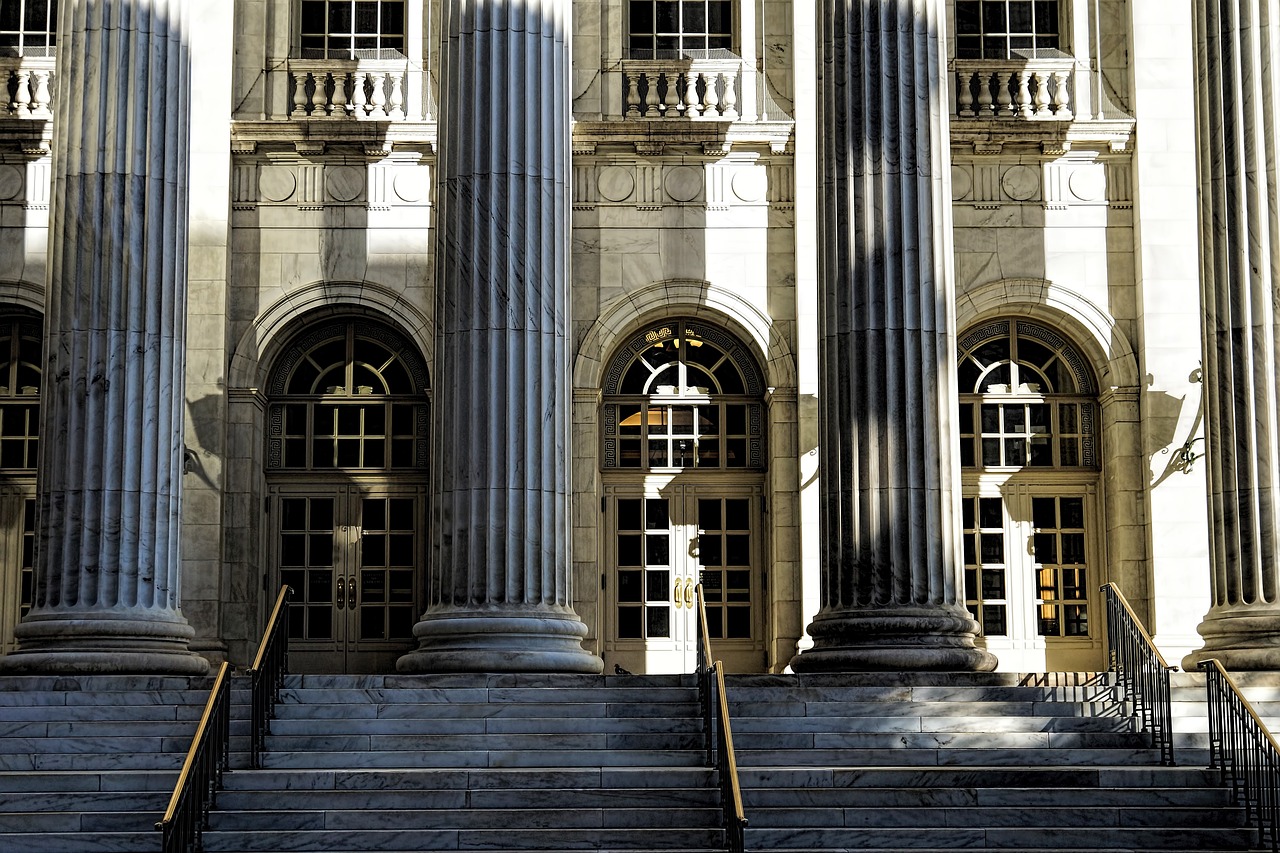
Judicial Discretion and Ethics
Judicial discretion refers to the power of judges to make decisions based on their own judgment and interpretations of the law. This concept is crucial in the legal system, as it allows judges to consider the unique circumstances of each case rather than applying the law in a rigid manner. However, this discretion also brings forth a myriad of ethical dilemmas that judges must navigate. How do judges balance the letter of the law with the spirit of justice? This question lies at the heart of the relationship between judicial discretion and ethics.
One of the primary ethical challenges judges face is the potential for bias. In exercising discretion, a judge's personal beliefs, experiences, and societal influences can inadvertently shape their decisions. For instance, consider a case involving sentencing. A judge may have the discretion to impose a lighter sentence based on mitigating factors, such as a defendant's background or intentions. However, if a judge allows personal biases to influence this decision, it could lead to unequal treatment under the law. Thus, the ethical imperative for judges is to strive for impartiality and fairness, ensuring that their rulings are based on facts and law rather than personal prejudices.
Moreover, the importance of transparency in judicial decision-making cannot be overstated. When judges exercise discretion, it is essential for them to articulate their reasoning clearly. This not only fosters public trust in the legal system but also serves as a guideline for future cases. Without transparency, the exercise of judicial discretion can appear arbitrary, leading to public skepticism about the integrity of the judicial process. Judges must, therefore, be diligent in documenting their thought processes and the ethical considerations that guide their decisions.
Furthermore, the ethical landscape of judicial discretion is continually evolving. As societal norms shift, so too do the expectations of judges. For example, issues such as racial injustice and gender equality have prompted judges to reconsider how their discretion can either perpetuate or challenge systemic inequalities. In this context, judges are called to be not only interpreters of the law but also advocates for justice. They must reflect on how their decisions can contribute to a more equitable society, thus intertwining ethics with the exercise of judicial discretion.
In conclusion, the interplay between judicial discretion and ethics is complex and multifaceted. Judges must navigate their roles with a keen awareness of the ethical implications of their decisions. Balancing personal judgment with legal standards, ensuring transparency, and being responsive to societal changes are all critical components of ethical judicial practice. As we continue to examine the philosophy of law, the ethical responsibilities of judges remain a vital area of focus, influencing not only individual cases but the broader legal landscape as well.
- What is judicial discretion?
Judicial discretion is the power of judges to make decisions based on their judgment and interpretation of the law, allowing them to consider the unique circumstances of each case. - Why is ethics important in judicial discretion?
Ethics ensures that judges make fair and impartial decisions, free from personal biases, and maintain public trust in the legal system. - How can judges ensure transparency in their decisions?
Judges can ensure transparency by clearly articulating their reasoning and documenting the ethical considerations that guide their rulings. - What challenges do judges face regarding bias?
Judges may face challenges in preventing their personal beliefs and experiences from influencing their decisions, which can lead to unequal treatment under the law. - How does societal change affect judicial discretion?
As societal norms evolve, judges may need to reconsider their discretionary decisions to align with contemporary values, particularly regarding issues of justice and equality.
Frequently Asked Questions
- What is the philosophy of law?
The philosophy of law, often referred to as legal philosophy, explores the fundamental concepts and theories that underpin legal systems. It examines how legal principles are intertwined with moral philosophy, societal norms, and individual rights, providing a deeper understanding of the law's purpose and implications.
- Who are some key thinkers in the history of legal philosophy?
Throughout history, many influential philosophers have shaped legal thought. Notable figures include Plato and Aristotle from ancient times, and more recently, thinkers like Thomas Aquinas and John Locke, whose ideas on natural rights and justice continue to resonate in contemporary legal discussions.
- What is natural law theory?
Natural law theory posits that certain rights and moral values are inherent and universal, transcending man-made laws. This theory has significantly influenced legal systems and human rights legislation by asserting that laws should reflect moral truths and ethical standards inherent in human nature.
- How is natural law theory applied today?
In modern legal systems, natural law theory is often invoked in discussions surrounding human rights and international law. It reinforces the idea that there are fundamental rights that should be respected and protected by legal frameworks, emphasizing the connection between morality and legality.
- What are the critiques of natural law?
Critics of natural law theory argue that it can be too rigid and inflexible, often clashing with legal positivism, which views law as a social construct. These critiques raise important questions about the balance between moral principles and the practicalities of law-making in diverse societies.
- What is legal positivism?
Legal positivism is a theory that asserts that law is a set of rules created by human beings, independent of moral considerations. This perspective has significantly shaped modern legal systems, emphasizing the importance of established laws and regulations over moral or ethical implications.
- What is critical legal studies?
Critical legal studies is a movement that challenges traditional legal doctrines, arguing that law is deeply influenced by social, political, and economic factors. It seeks to expose the ways in which law can perpetuate inequalities and advocates for reforms that promote social justice.
- How does ethics play a role in law?
Ethics and law are closely linked, as moral principles often inform legal practices. The interplay between ethics and law is crucial, especially in judicial decision-making, where judges must balance legal precedents with ethical considerations in their rulings.
- What is judicial discretion and why is it important?
Judicial discretion refers to the authority judges have to make decisions based on their interpretations of the law and the circumstances of each case. This discretion is important because it allows for flexibility and adaptability in legal rulings, but it also presents ethical dilemmas as judges navigate between strict legal interpretations and moral imperatives.


